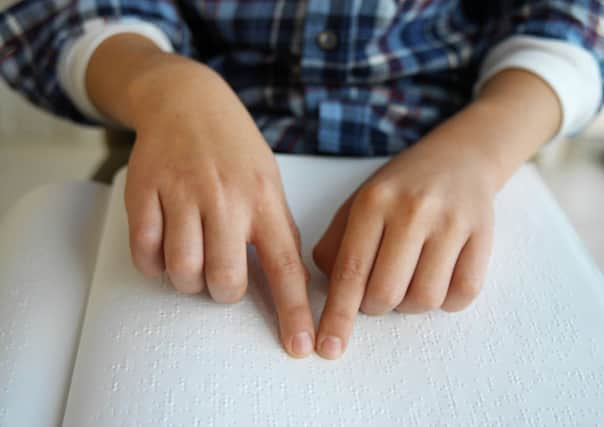Almost half of visually impaired kids are bullied


This behaviour can lead to children facing various forms of bullying, with 86 per cent verbally abused, 74 per cent ignored, and 44 per cent facing physical violence.
The research, carried out by Blind Children UK, discovered that parents of sighted children will deliberately not invite blind children to events.
Advertisement
Hide AdAdvertisement
Hide AdAlmost half of parents with sighted children questioned admitted they would not feel comfortable inviting a blind or partially sighted child to their home without a parent or guardian.
Research found that the reason for exclusion from activities could vary, with 51 per cent worried the child would hurt themselves.
Another 47 per cent said they didn’t know enough about their needs and 36 per cent were concerned they wouldn’t be able to navigate around their home.
Richard Leaman, chief executive of Blind Children UK, said: “We’ve released these findings to try and raise awareness of the challenges faced by children with a vision impairment and their families.
“This lack of social understanding and acceptance causes feelings of isolation and loneliness, and our research suggests parents’ discomfort around children with sight loss may cascade down to the next generation. It is vital, therefore, that our experienced specialist family support and education support teams are on hand to provide information and advice to families who are experiencing this type of behaviour.”
For the research, Blind Children UK conducted a survey of 106 parents of children between the ages of two and 18 across the UK with a vision impairment, and also 1,195 parents in the UK with children under the age of 18.
Glenys Critchley, of Blind Children UK, said: “With a little help and support, children with sight loss can enjoy many of the same activities as their peers.
“Excluding them is not the answer – parents should take the time to understand their needs and ask the child’s parents for guidance or advice, as well as asking the child directly if they need any additional help.”
Advertisement
Hide AdAdvertisement
Hide AdFadzie Karina, a 14-year-old with juvenile glaucoma, added: “Being vision impaired doesn’t make me any less of a person compared to somebody else.
“Not everyone is the same, but that doesn’t mean they can’t achieve the same things. Being able to socialise with my friends is really important to me, why should I lose out because of other people’s fears?”
Blind Children UK is also part of the Guide Dogs Family, and offer Buddy Dogs and guide dogs for young people.
FOLLOW US
SCOTSMAN TABLET AND MOBILE APPS